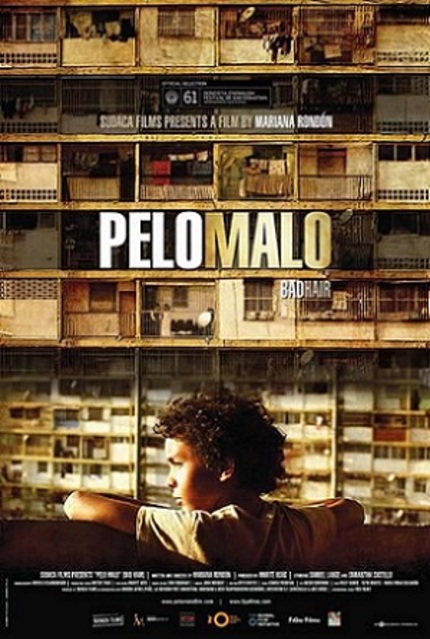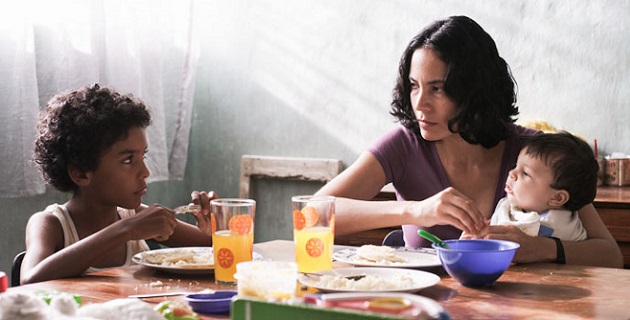Lisbon & Estoril 2013 Review: PELO MALO Goes For Sweet And Harsh And Succeeds

The main attraction at this year's San Sebastián, where it took home the top award, Mariana Rondón's Pelo Malo smartly draws from Italian neorealism to create an intimate, sparely successful depiction of hardship during childhood and sexual identity. Its first and foremost achievement is the fact it manages to do both, blending innocence and harsh characterization in a sweet, poignant tale of a nine-year-old boy with curly, "bad" hair who wants to look like a straight-haired singer for his upcoming school photo. This tiny problem in the boy's life, of course, serves as a basis for what Rodón is really trying to glimpse into: how homosexuality starts to manifest itself, the confusion and rejection that it entails in any poverty-stricken, ignorant society (and not just those) and how that change can usually mean not being fully accepted by society, family, or yourself.
Pelo Malo can't really be put in the queer cinema category since the boy, Junior, doesn't even know what gay or straight means. He's just starting to feel different things, as everyone has, while dealing with a lot of other stuff that no child should have to, and Rondón uses that to build what is essentially a character study - an introspective, non-judgmental character study that knows how to use nostalgia to its advantage. Junior is basically just trying to win his mother's love and acceptance, whose own homophobia leads her to alienate and reject him, and so the film also becomes about that very basic theme of motherly affection or lack thereof. Rondón's very feminine sensitivity infuses the film with disarming sincerity but also a total lack of fear in showing both characters, mom and child, in their truest nature. If the film's carefree pace might be irritating for some, others may find themselves won over by its balance of warm heart, naturalistic humor and restrained drama.
Rondón goes for a documentary-like cinematography instead of a sober one, which helps with the slow pace in which events follow and also gives the film its urban, gritty feel that you associate with a South-American metropolis. Caracas becomes a character in itself, a violent, hostile character, with its largely crowded, prison-like apartment blocks where families live cramped and hopeless. In an early scene, Junior and his neighbor friend play an "I scout" game where they look at the building opposite their own and its multitude of windows and balconies and spot people doing random things; this simple, childish game played to relieve boredom serves as contextualization and reminder that this kid and his mom are just two people, two stories amongst thousands who could be the focus of any other film. Pelo Malo avoids shouting commentary and political statements, and it is a very straightforward story, but Rondón is perfectly aware that its surroundings, social and literal, are as influential as anything else.
Luckily, none of this is as depressing as it should be since Rondón also knows how to make us laugh - not laugh out loud, just enough to get through it, like the people in it. Children and their always inspiring ingenuity always make for a bit of laughter and the film ends precisely on that playful note: with a groovy, late-'60s Venezuelan rock 'n' roll song, the same Junior sings to with his grandma while fantasizing about his photo. Which makes sense, considering these are helpless, wounded characters, and groovy music always helps the helpless and the wounded.








